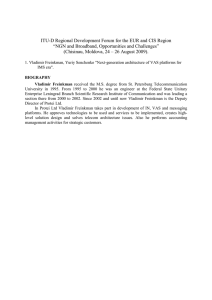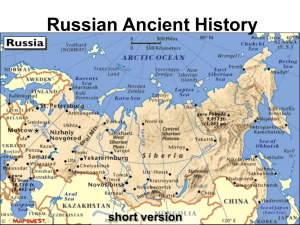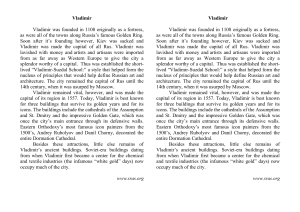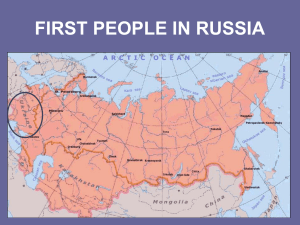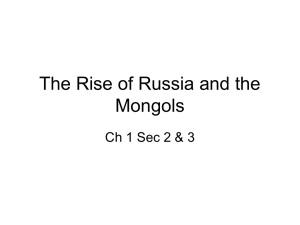Vladimir
advertisement
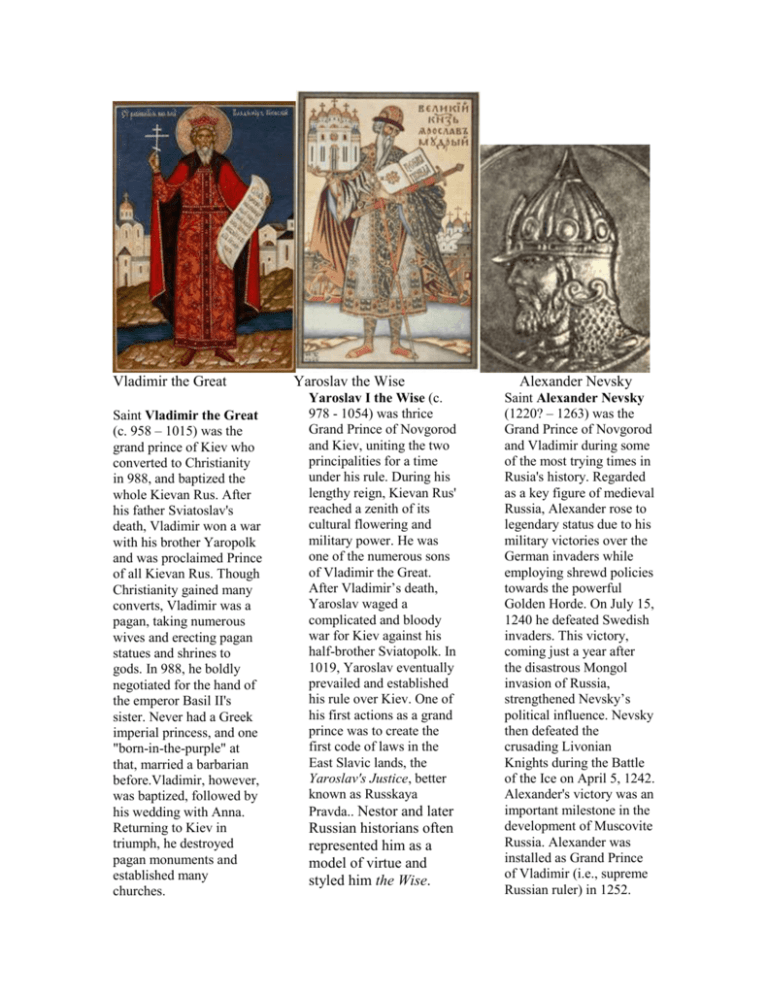
Vladimir the Great Saint Vladimir the Great (c. 958 – 1015) was the grand prince of Kiev who converted to Christianity in 988, and baptized the whole Kievan Rus. After his father Sviatoslav's death, Vladimir won a war with his brother Yaropolk and was proclaimed Prince of all Kievan Rus. Though Christianity gained many converts, Vladimir was a pagan, taking numerous wives and erecting pagan statues and shrines to gods. In 988, he boldly negotiated for the hand of the emperor Basil II's sister. Never had a Greek imperial princess, and one "born-in-the-purple" at that, married a barbarian before.Vladimir, however, was baptized, followed by his wedding with Anna. Returning to Kiev in triumph, he destroyed pagan monuments and established many churches. Yaroslav the Wise Yaroslav I the Wise (c. 978 - 1054) was thrice Grand Prince of Novgorod and Kiev, uniting the two principalities for a time under his rule. During his lengthy reign, Kievan Rus' reached a zenith of its cultural flowering and military power. He was one of the numerous sons of Vladimir the Great. After Vladimir’s death, Yaroslav waged a complicated and bloody war for Kiev against his half-brother Sviatopolk. In 1019, Yaroslav eventually prevailed and established his rule over Kiev. One of his first actions as a grand prince was to create the first code of laws in the East Slavic lands, the Yaroslav's Justice, better known as Russkaya Pravda.. Nestor and later Russian historians often represented him as a model of virtue and styled him the Wise. Alexander Nevsky Saint Alexander Nevsky (1220? – 1263) was the Grand Prince of Novgorod and Vladimir during some of the most trying times in Rusia's history. Regarded as a key figure of medieval Russia, Alexander rose to legendary status due to his military victories over the German invaders while employing shrewd policies towards the powerful Golden Horde. On July 15, 1240 he defeated Swedish invaders. This victory, coming just a year after the disastrous Mongol invasion of Russia, strengthened Nevsky’s political influence. Nevsky then defeated the crusading Livonian Knights during the Battle of the Ice on April 5, 1242. Alexander's victory was an important milestone in the development of Muscovite Russia. Alexander was installed as Grand Prince of Vladimir (i.e., supreme Russian ruler) in 1252.

